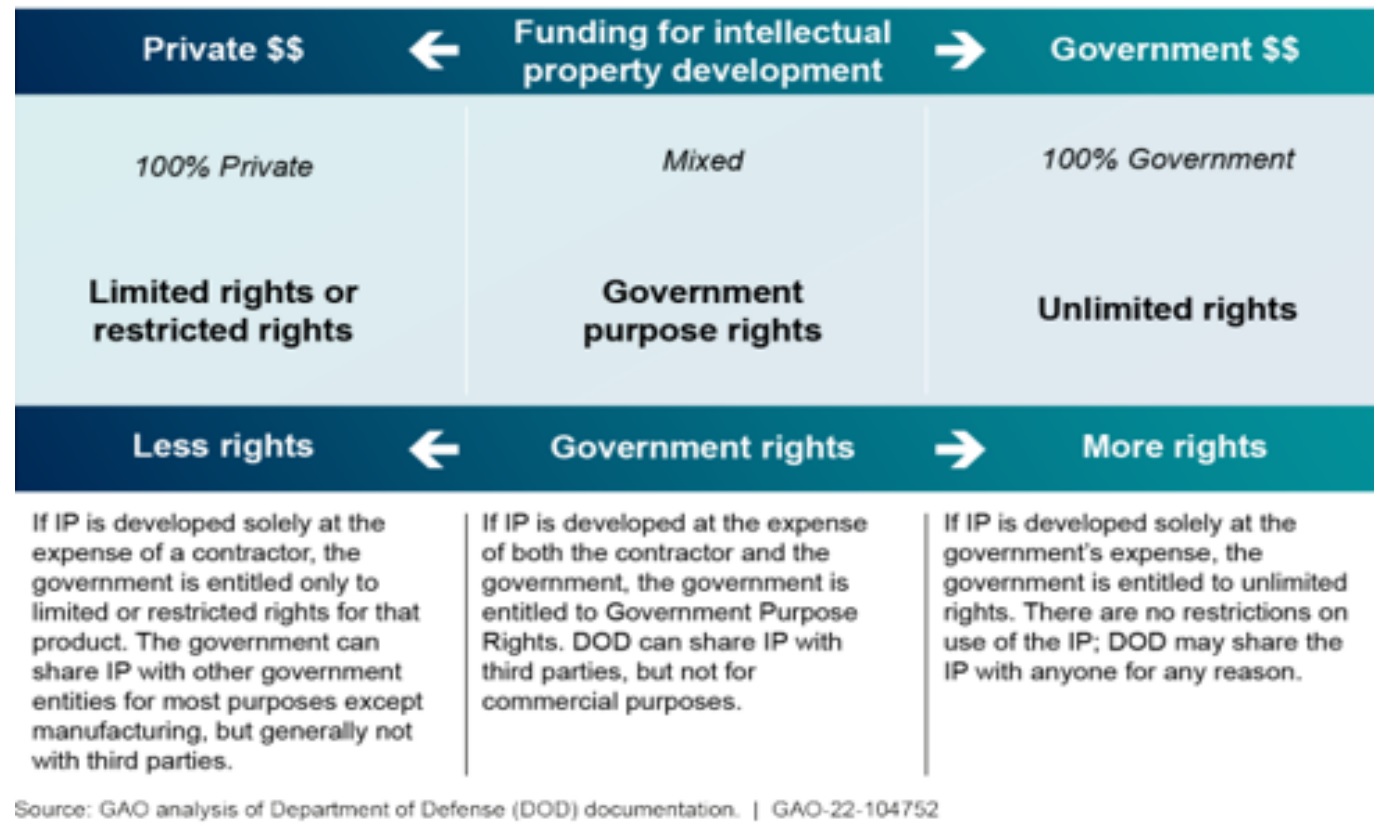Intellectual property (IP) rights play an important role in DOD acquisition by providing a framework for competition, innovation, and technological trajectory. Poorly defined data rights can be problematic for the DOD and can strangle innovation that might otherwise be useful to the public. Small businesses that lack adequate resources required to cater to the extensive acquisition requirements of the government may be subjected to unfair competition, slow or no growth opportunities, and prejudiced innovation. Furthermore, small businesses might face challenges in complying with the extensive DOD acquisition parameters, thus disincentivizing them from engaging in business with the government.
This thesis research explores the effectiveness of the current DOD acquisition policies and procedures governing intellectual property rights and examines how these data rights policies apply to and affect small businesses. The methodology herein includes an in-depth literature review of existing legislative and policy initiatives and their effectiveness in the Small Business Innovation Research (SBIR) program. The findings determine that the current DOD policies and procedures are disadvantageous to small businesses and create a negative perception of the DOD acquisition process. This research recommends reframing the existing training and continuing education programs of the DOD acquisition workforce in order to improve and encourage successful IP acquisitions with small businesses.
Read the full thesis: https://dair.nps.edu/handle/123456789/4797

